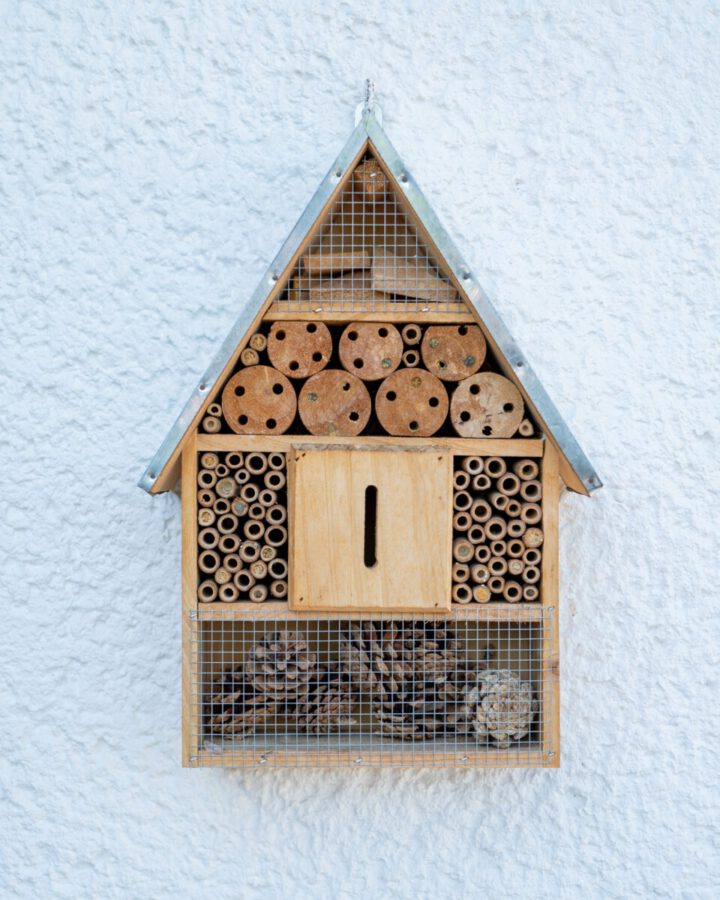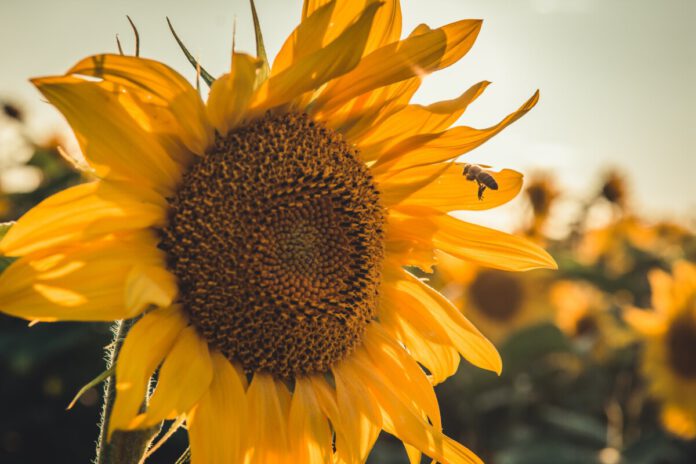Netherlanders are multilingual and multitalented. Apart from cycling through gale-force winds and finding the best goods worth their euro, they are passionate gardeners. The ardour for greenery is widely shared — even beyond the people who work for the Keukenhof tulip garden.
The plant-love extends to everyday people, who adorn their homes, sidewalks, and really anywhere they can squeeze in a tulip bulb, with a colourful array of flowers. But these abundant bright beauties wouldn’t be possible with the unsung heroes who work hard behind the scenes — the insects that pollinate them. Here in the Netherlands, the humble bee is finally getting its due credit.
Gardening glory
You know a culture loves its plants when tuincentrums (garden centres) are crowded even in the dead of winter. From decorative butterflies, gnarled pompoen (pumpkin), kabouters (gnomes) and even gargoyles, there are more accessories for gardens than for the average fashionable human.
Come spring, most garden centres and Action outlets burst with garden necessities (and unnecessities). But of late, something else has made a presence in their racks — insectenhotel (insect hotels). These tiny wooden houses filled with hollow reeds, pinecones and perforated blocks of wood are now haute. They symbolize ecological awareness, help shelter pollinators through winter, and of course, add a rustic charm.

Bee-ing safe
As scientists emphasize and reemphasize the importance of bees and other pollinators, never has the Netherlands’ love for flora been more appreciated. The EU, after years of being nudged and pushed, finally banned the use of bee-harming pesticides. Now, the Netherlands is committed to saving the bees and proliferating them.
So how do Dutchies keep green spaces alive with creepy crawlies? Simple. They let strips of the land grow wild and additionally scatter wildflower seeds. Native plants and flowers are quick to take advantage, push through the soil, and in turn, bees and other pollinators swarm to feed.
While the United States lost 40% of its bees in a single year, Amsterdam alone has seen a spike of 45% (since 2000) in its bee population! Rotterdam and Utrecht have started adorning bus stops with bee-friendly flowers. The government even launched a “Bed and Breakfast for bees” programme, and beyond that, organizations like Friends of Bees are busy campaigning to save these important insects.
Beekeeper-turned-savior
Everyday citizens are taking things into their hands too. Deborah Post is a certified biodynamic beekeeper whose bees started to decline in number. She did the only logical thing to keep them alive — plant flowers.
What started as one person’s effort in her own neighbourhood has now spread across 110 kilometres. She has re-flowered highways (A4, A2, N15, N14, etc), and railway stations in Gelderland, Schipol, Delft-Zoetermeer and more. This is collectively called the Honey Highway and is now helping bees, and Dutch farmers, as well as hobby gardeners.
And just like that, native flowers and plants came back in vogue. Despite the increasing warmth of summers, the plants survive and so do the buzzers. Municipalities identified bits of land to sow these low maintenance plants and soon others began repeating this success story across the country.
The nature-loving Dutch
Like some person (possibly Dutch?) once said, the best things in life are free. This is the belief with which generations of children are brought up and it has come to be useful in this particular context.
Dutch children are in tune with nature. They run unhindered and barefooted through the grass and scalding sand. They make bouquets of wildflowers. Collecting shells, pinecones and autumn leaves are favourite activities. Feeding obese ducks in the canals is a national pastime. Biking through photogenic cycling routes and picnicking in fields of tulips and daffodils is another adventure. This way, they learn the importance of nature and thus our responsibility to conserve it.
Holland might not have ‘natural’ nature spots, but what they do have is a lot of respect for Dame Nature and great skills to copy her. Thanks to that, almost every neighbourhood has green wilderness and even bustling cities have dedicated forest space filled with greenery, solitude, pollinators and poo. Perhaps that is a part of the natural experience. So maybe it is time to proliferate dung beetles?!
What’s your take on the buzz around bees in the Netherlands? Tell us in the comments below!
Feature Image: Andriyko Polilnyx/Unsplash

Love towards nature is quite natural unless someone tries to ignore. Any hard working person in the right direction will be always giving his society pure Honey. Sweet & healthy.